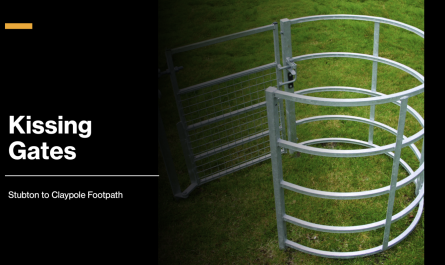An Lincolnshire County Council News Story: Published: 5th June 2024
Caring is not something anyone expects to happen, but unpaid care is an issue that impacts us all and there are currently 5.7 million unpaid carers in the UK.
Research from Carers Week 2021 (Lincolnshire County Council, 2021) estimates that there are 88,000 carers in Lincolnshire alone.
However, many more people may not identify as or even realise they are carers, which can result in a high proportion of carers going without support. But it’s important to know that if you are a carer, you are not alone. There is a range of support out there, and you shouldn’t wait until it’s too late to access that support before you find yourself in difficulty.
Stu’s story
Stu cares for his wife Ann who has progressive multiple sclerosis and nystagmus (visual impairment). Ann is also being assessed for early onset dementia. Stu has been a carer for Ann for over 30 years with 12 of those years caring full-time.
As Ann’s condition has progressed, Stu’s caring role has intensified. His role is 24/7 and he does everything for Ann himself. This includes feeding and drinks, toileting and regular repositioning in either her bed or chair. He also provides emotional and practical support as well as all household chores (cleaning, shopping, paying bills).
Stu found himself increasingly exhausted and isolated as his caring role meant he had no time to maintain friendships. He wasn’t able to leave the house without Ann.
The intensity of his caring role combined with no opportunity for a break left Stu feeling depressed and hopeless about the future.
He says: “My mental health was really suffering. I felt like life had no purpose and sometimes felt resentful about my caring role. This left me feeling guilty as I didn’t want anyone to think I blame Ann.”
There was a real risk if nothing changed, Stu’s mental health would decline to the point he wouldn’t be able to continue caring for Ann.
Stu was referred to Carers First for a Statutory Carers Assessment. His Carer Support Adviser (CSA) explored with Stu what he felt his support needs were. They also discussed his personal and community networks.
His CSA was able to support Stu to access Continuing Healthcare (CHC) funding for six hours a week of paid care to assist with Ann. Alongside this, additional CHC funding was secured to provide three respite stays for Ann a year allowing Stu to have a break from his caring role.
As a full-time carer, Stu relies on income from benefits he and Ann receive. This income just about covers their household bills. A personal budget was arranged to help Stu to pay for breaks away or activities with the respite time granted to him through CHC funding.
Stu had no family nearby and had found it hard to keep in touch with friends as his caring role intensified. His CSA introduced Stu to Carers First ‘Men Care 2’ project. This project brings men together to build friendships and encourage peer support. Stu joined the Whatsapp group, then started going along to events including the monthly Banter Breakfast as well as day trips to York and Lincoln Castle.
Stu is now managing much better in his caring role. He has recently been able to take a trip to Berlin thanks to the respite time granted through CHC funding. He never imagined this would be possible, financially or practically, before the support from Carers First. “It’s wonderful to have something to look forward to, just for myself. It helps me recharge before going back to my caring role.”
To find out more about the range of support available, including the Lincolnshire Carers Service, click here or ring 01522 782224 (8am-6pm) Monday-Friday. You can also find out how the Lincolnshire Young Carers service supports young carers up to the age of 19 by clicking here.
Published: 5th June 2024




